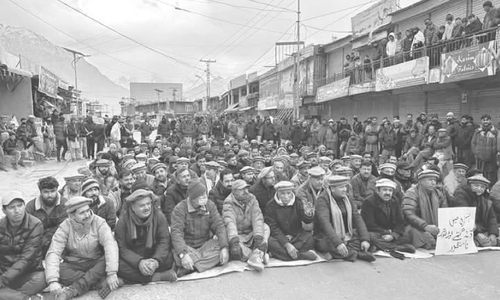KARACHI, June 22: Experts in emergency medicine at an international conference on Wednesday stressed the need for increased and quality pre-hospital emergency medical services in the country's government health system, overwhelmed by trauma and injury visitors.
They also suggested having more trauma surveillance, accidents and intentional injury investigations, safety measures, rules, education and awareness of emergency based injuries, including poisoning. They also emphasised relevant training and skill development of emergency care physicians and capacity building of hospitals for more complex interventions.
The conference was organised by the Aga Khan University Hospital in collaboration with Johns Hopkins University, USA, and the Society of Emergency Physicians of Pakistan.
The chief guest at the inauguration session, Prof Zafarullah Chaudhary, president of the College of Physicians and Surgeons Pakistan, underlined the importance of emergency medicine and said doctors handling trauma patients must have necessary competence.
Giving an overview of emergency care in Pakistan, Dr Junaid Razzak of the AKU said that focussed efforts were required in emergency medicine to enhance human capacity, upgrade health facilities and system of care. Generally the establishment and maintenance of emergency departments at hospitals were considered a costly affair, but in view of their utility they were cost-effective, he added.
He further said that emergency care in Pakistan needed to be addressed adequately, particularly due to increasing disasters, trauma, myocardial infractions, strokes, maternal mortality, infant mortality and sepsis.Sharing details of a pilot test data pertaining to 105 health facilties of all tiers in four districts, he said only 11 per cent of them had designated emergency rooms. Common emergencies in adults were reported as diarrhoea/ dehydration, trauma and fever, while in the case of children the diseases were diarrhoea/dehydration, respiratory tract infections and fever.
Physicians at eight per cent of the facilities were trained in emergency care or trauma care, while only nine facilities (9pc) reported following any protocol for emergency management and 18 facilities (17pc) followed a trauma care protocol, he added.
According to the Pakistan National Emergency Department surveillance study, conducted by Dr Razzak and other researchers, at seven major medical centres at Islamabad, Rawalpindi, Peshawar, Lahore, Karachi and Quetta, a total of 353,675 patients arrived in a year, of whom 249,659 were enrolled. About 94pc of the patients were treated in government hospitals.
As many as 61pc of the emergency centre visitors were male only. A maximum 45.4pc of the total visitors fell in the age group of 26-45 years, while 42pc of them came without ambulance. About 48pc of all injuries reported during the period in the survey at the hospitals had the intentional injuries, while another 3pc were due to self harm.
According to the survey, case load in some centres was too high, while triage was uncommon. Dr Razzak noted that there was a major gap in the need and availability of emergency medical services in the country, while the development of a critical mass of people committed to emergency medical care was the key.
Prof Rasheed Jooma talked on emergency based injury surveillance and held that the situation pertaining to traffic injuries and fatalities needed a continued examination in big cities of Pakistan. Due to education of the people and those at the helm of affairs and introduction of vehicular traffic and pedestrian oriented measures things had improved considerably in Karachi.
A number of bridges and roads had been improved for the commuters, while the construction of pedestrian bridges had also added to the safety of the citizens, he said, adding that inputs from engineers, traffic police as well as emergency physicians could further improve the situation.
Dr Adnan A. Hyder from the US said a regional approach to emergency care was a most effective way. “When we think about healthcare, we should think about the emergency medical system as well,” he said.
Dr Nadeemullah Khan of the AKUH stressed the need for regulating harmful substances in Pakistan as, according to him, their easy access led to incidents resulting in a high mortality rate.
Talking about the global and regional burden of poisoning, he said about 0.35 million people died worldwide due to accidental poisoning in 2004.
Referring to the pattern of poisoning in the region, the doctor said that Sri Lanka had a fatality rate of 3.2pc as per a report prepared in 1989. He said the national health survey suggested a 0.3-3.3 per 1,000 per year.
He said an estimated 70 new cases of poisoning were reported per hour in the country, while fatality cases reported at the National Poison Control Centre (JPMC) was 5.6pc, at the Civil Hospital Karachi 8pc, at the AKUH 2.5pc (adults only) and at the Children Hospital in Lahore it was 11pc.
Dr Naghma Khan, Dr Jawaid Akhtar and Dr Mueed Ahmad also talked on poisoning, innovative techniques in toxicology and common household poisons and control.












































Dear visitor, the comments section is undergoing an overhaul and will return soon.